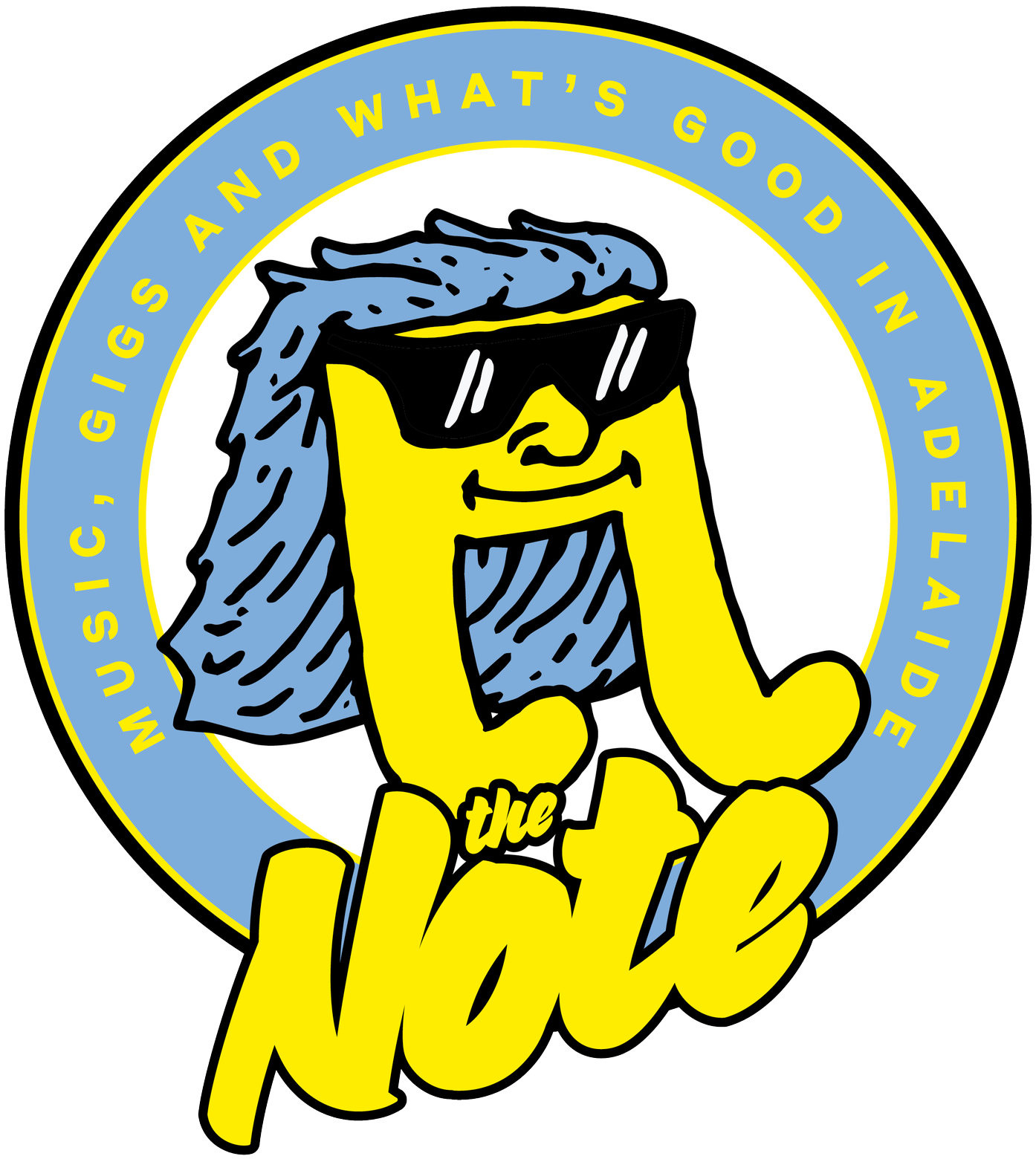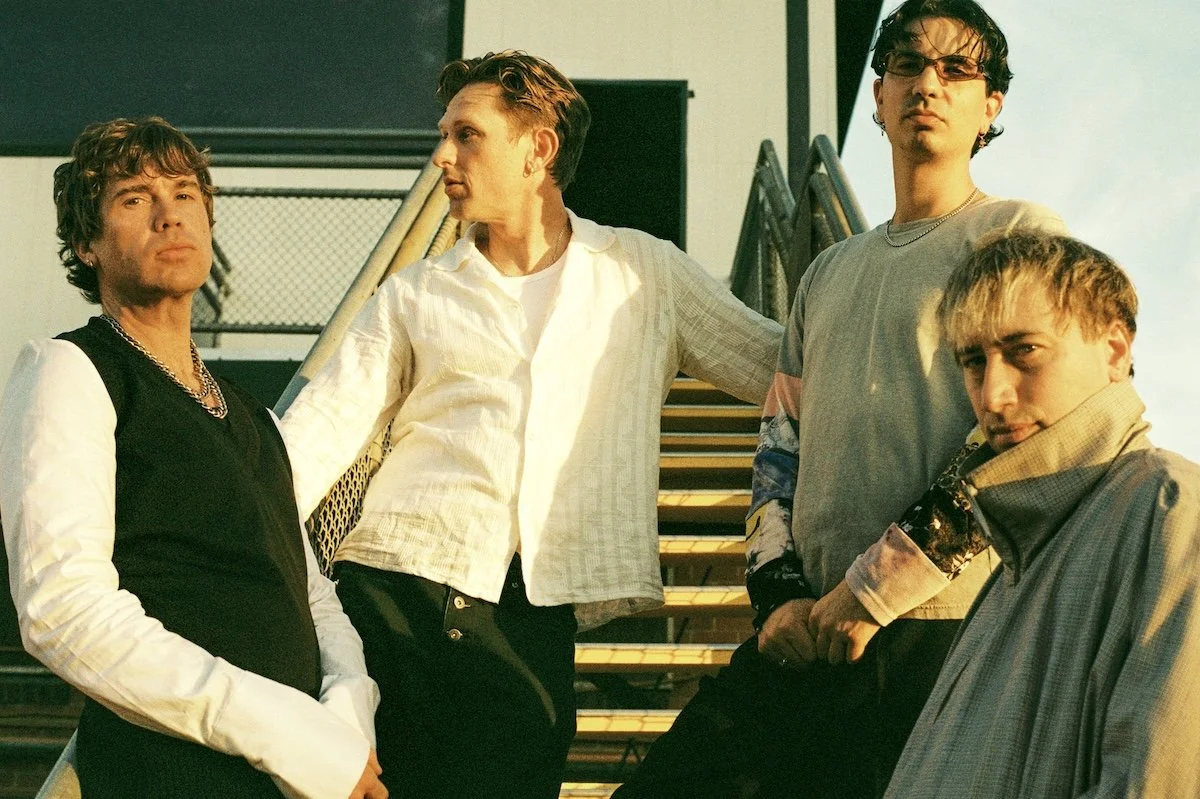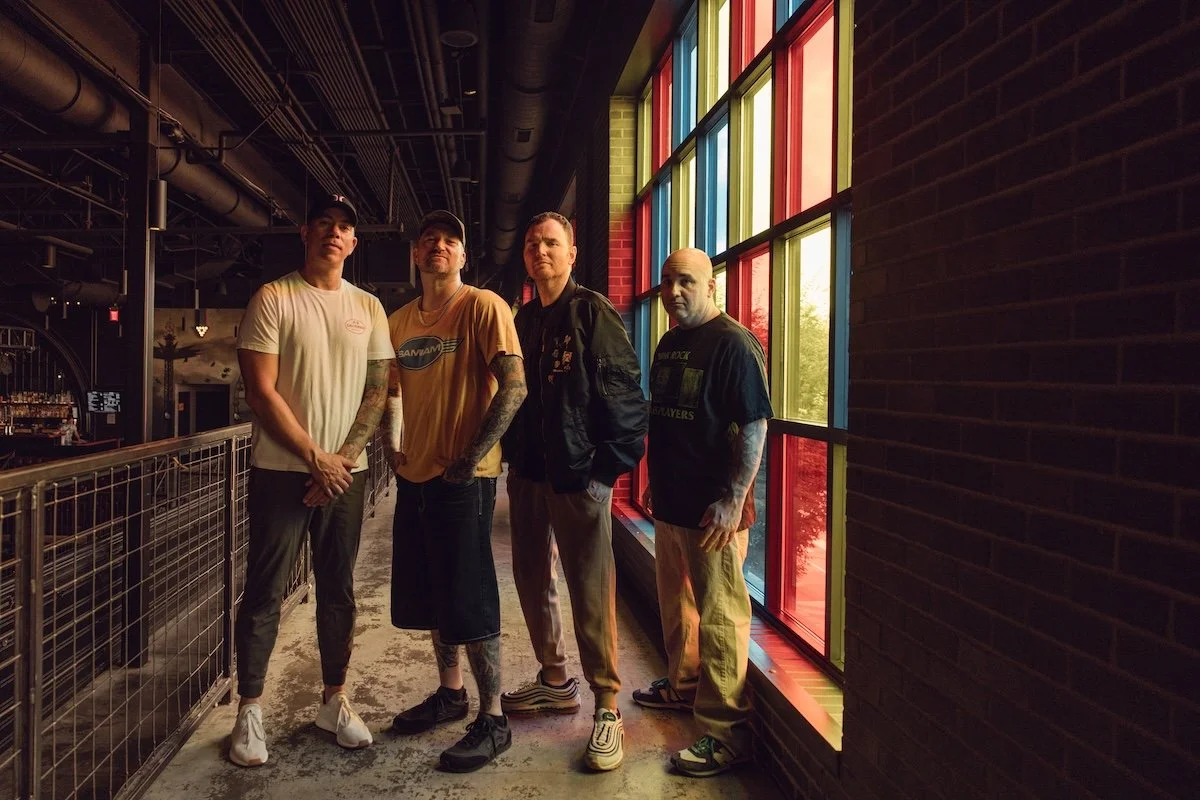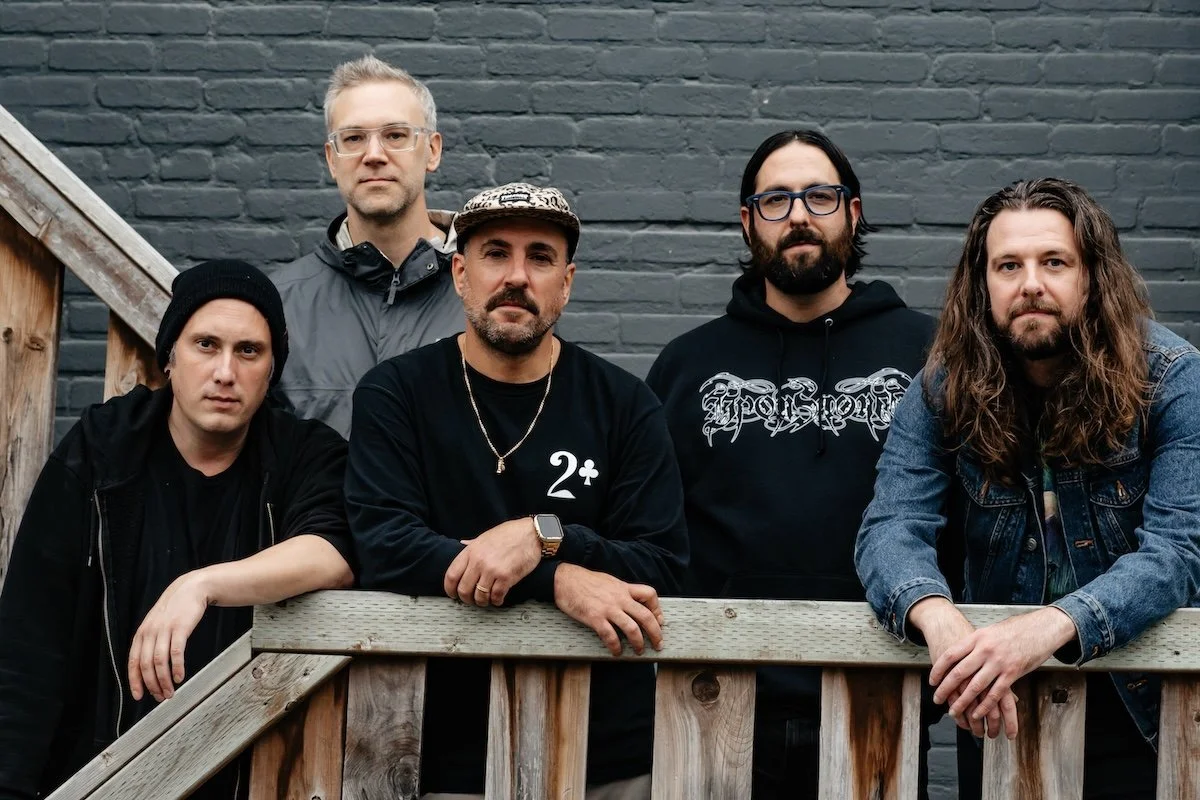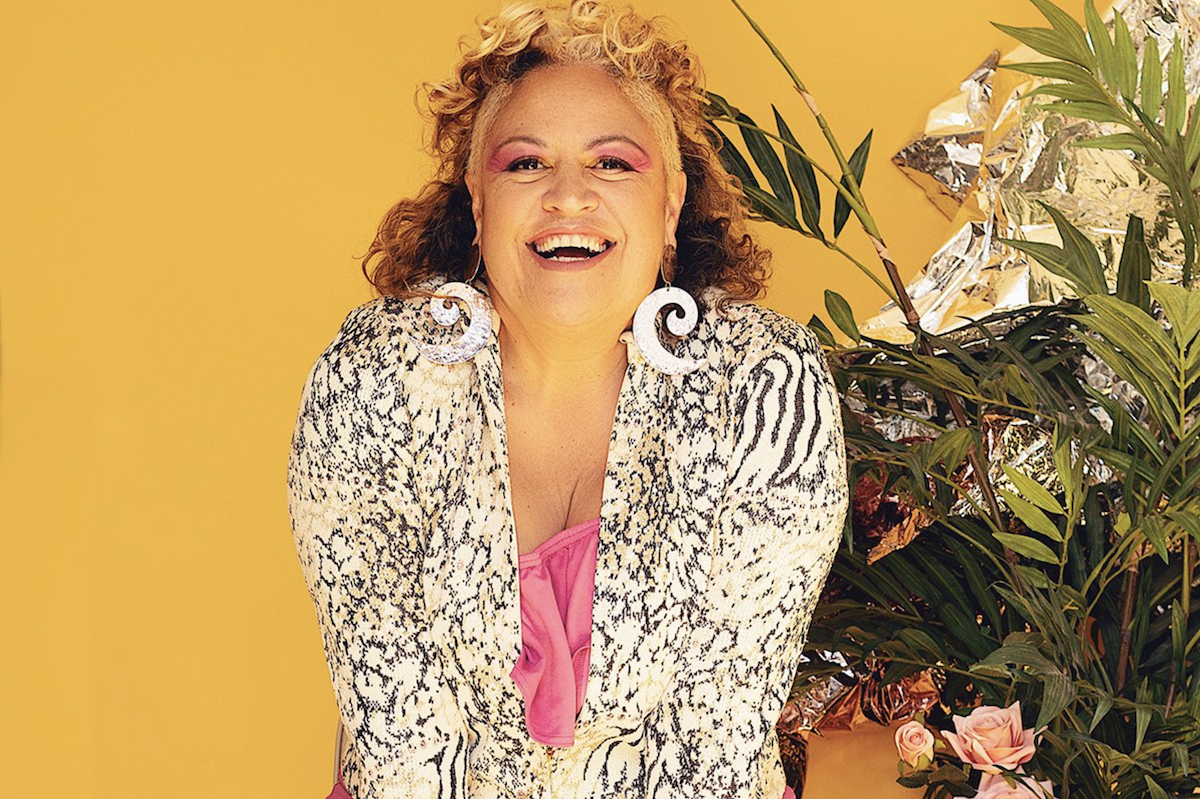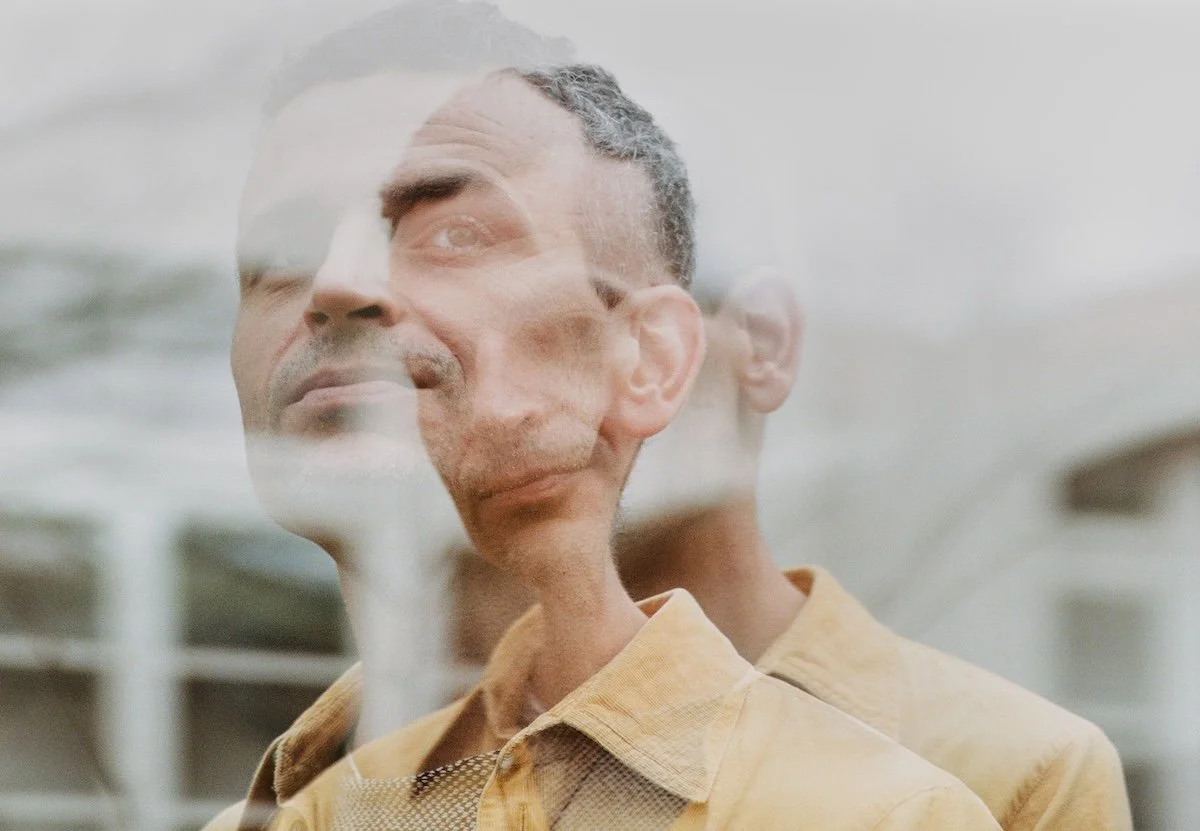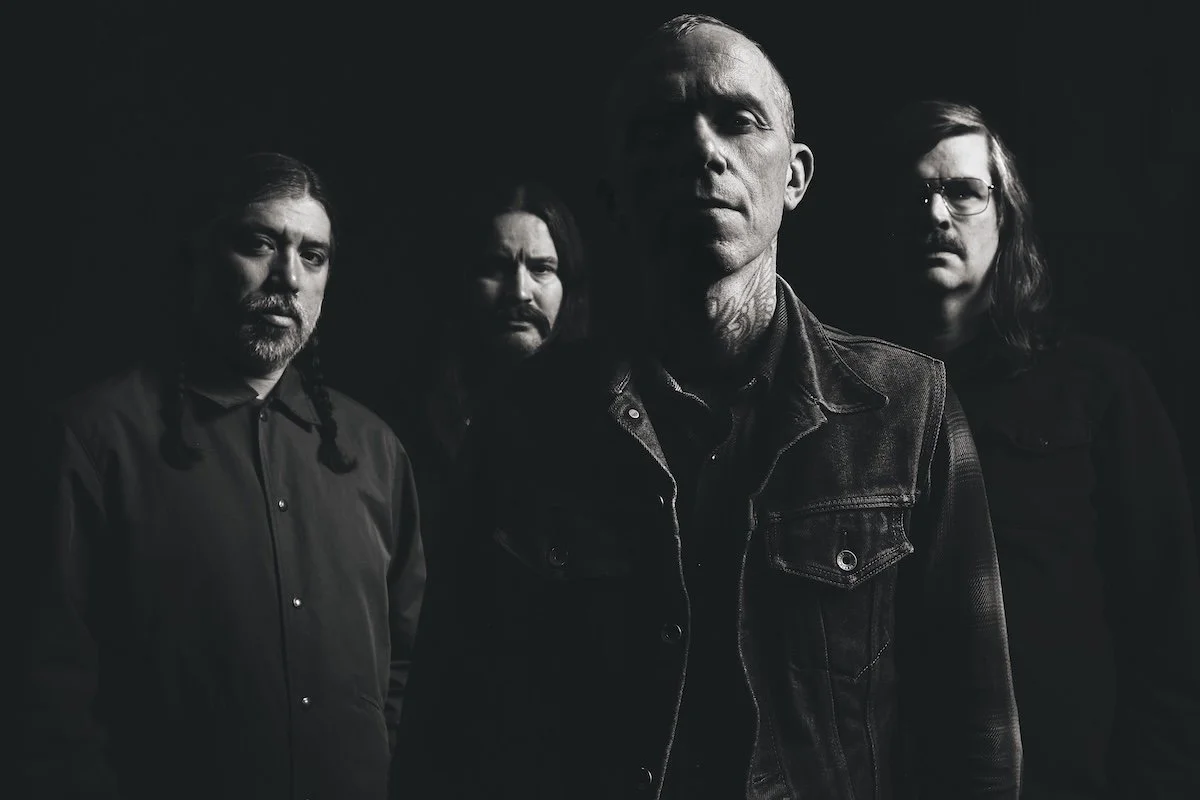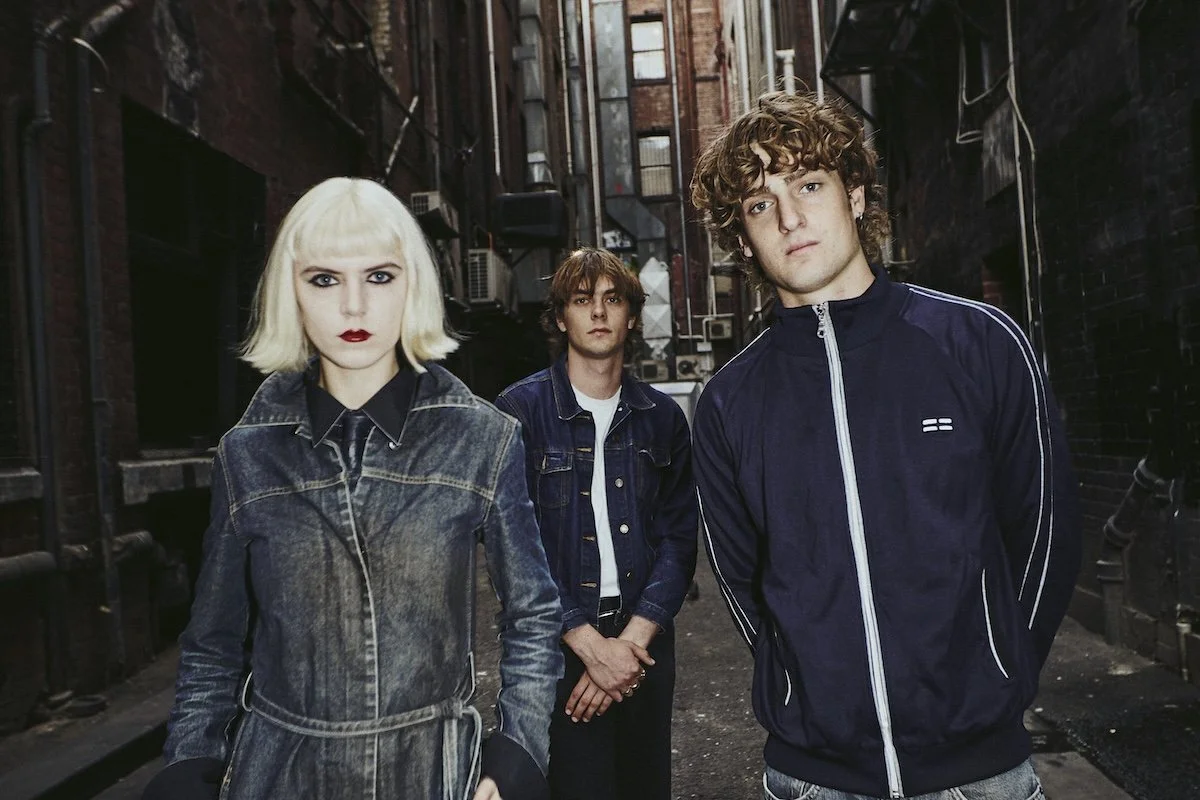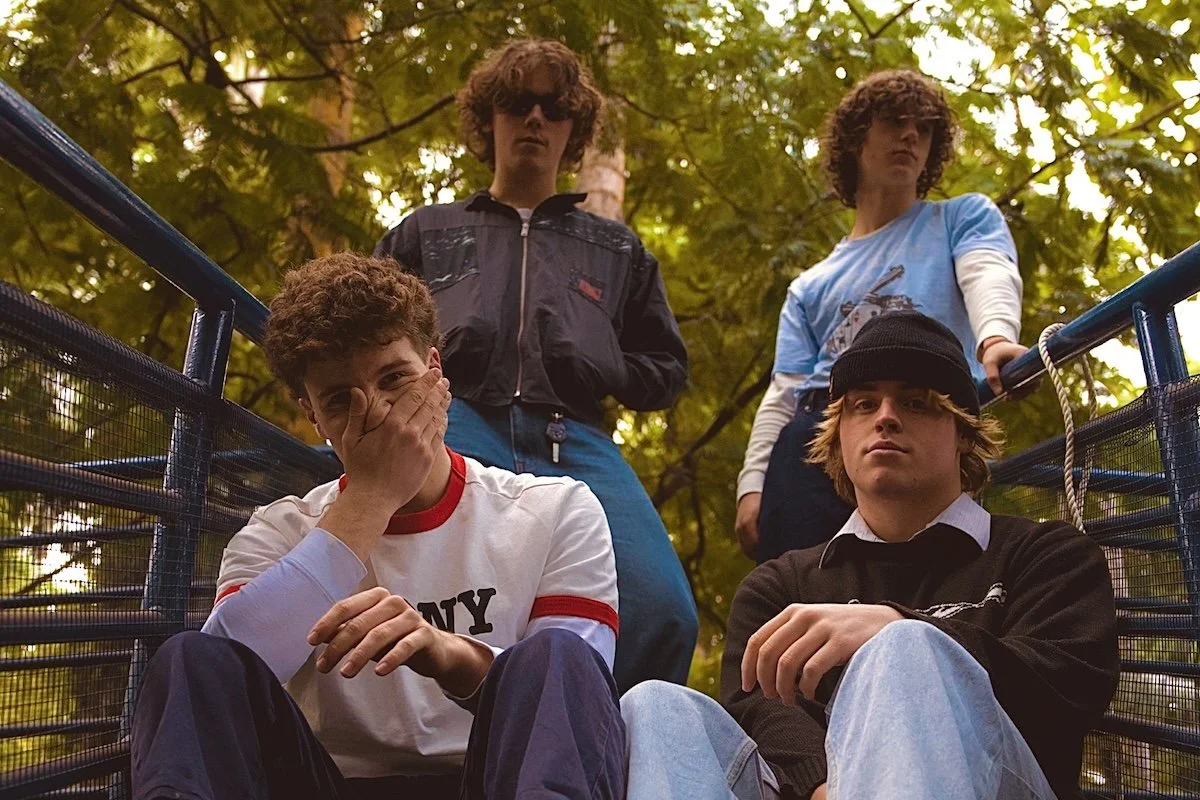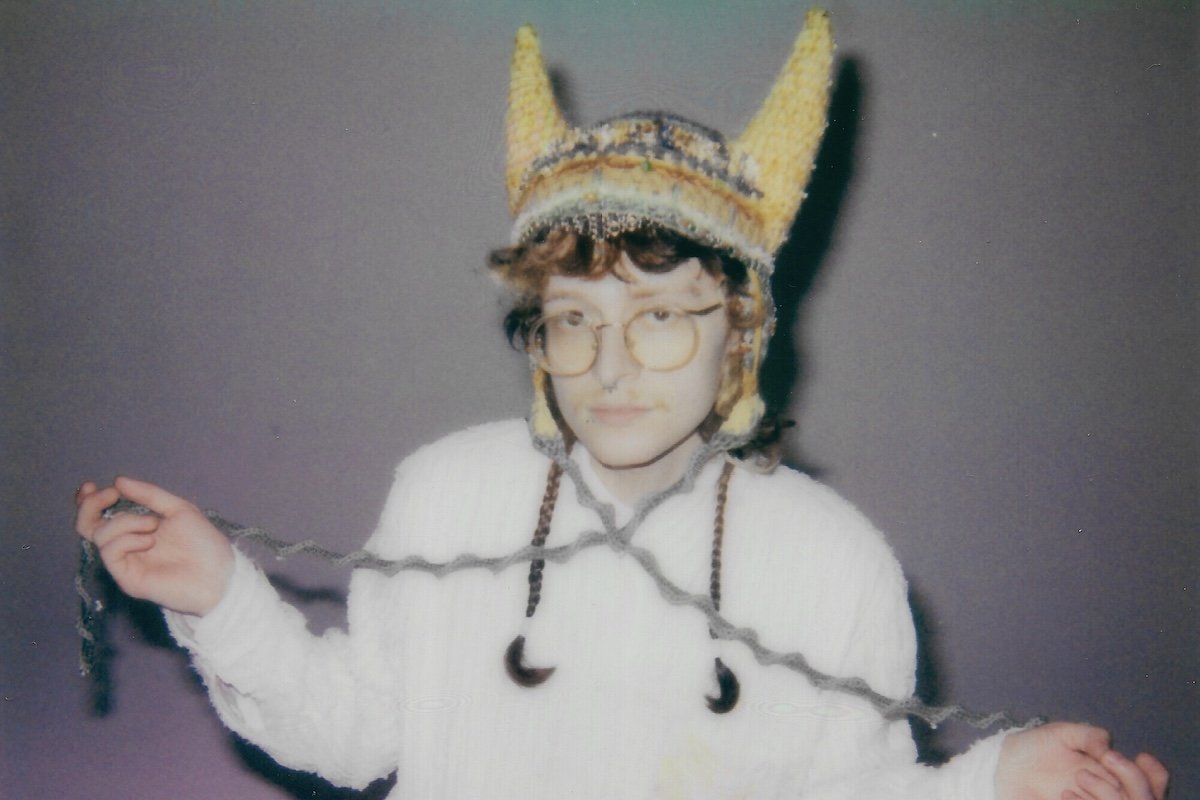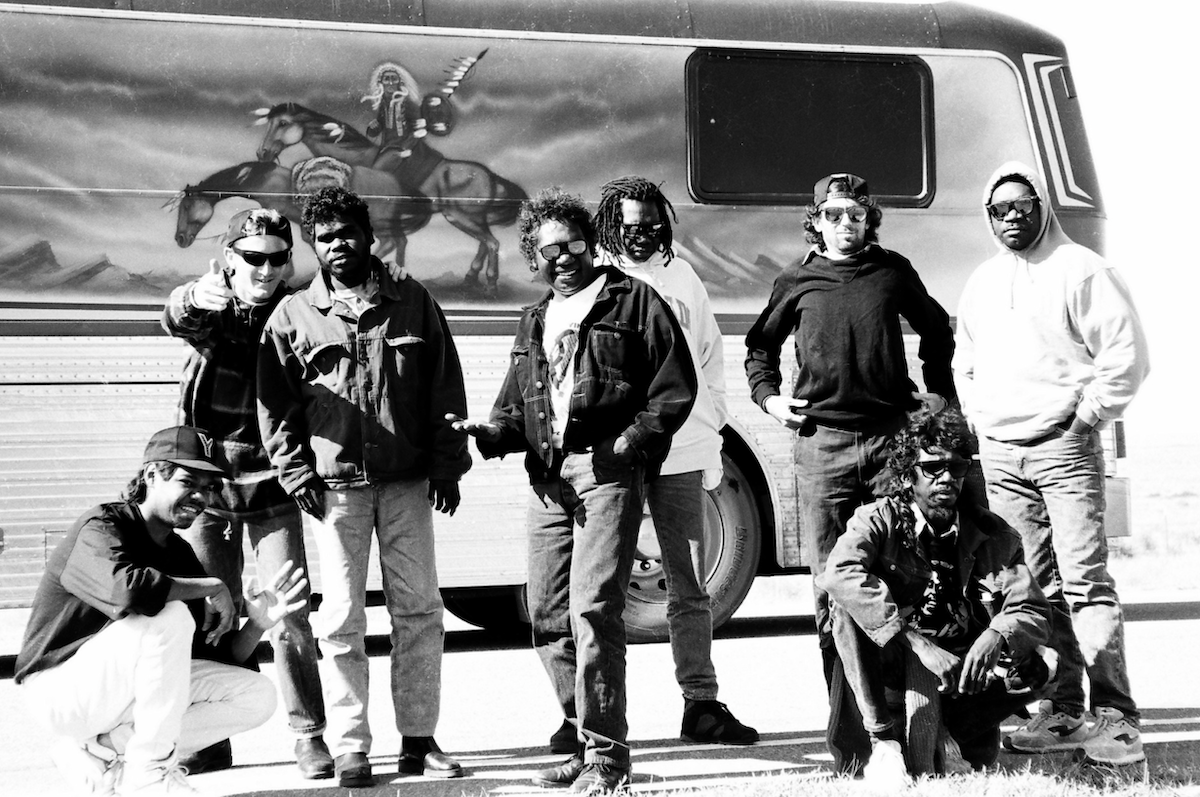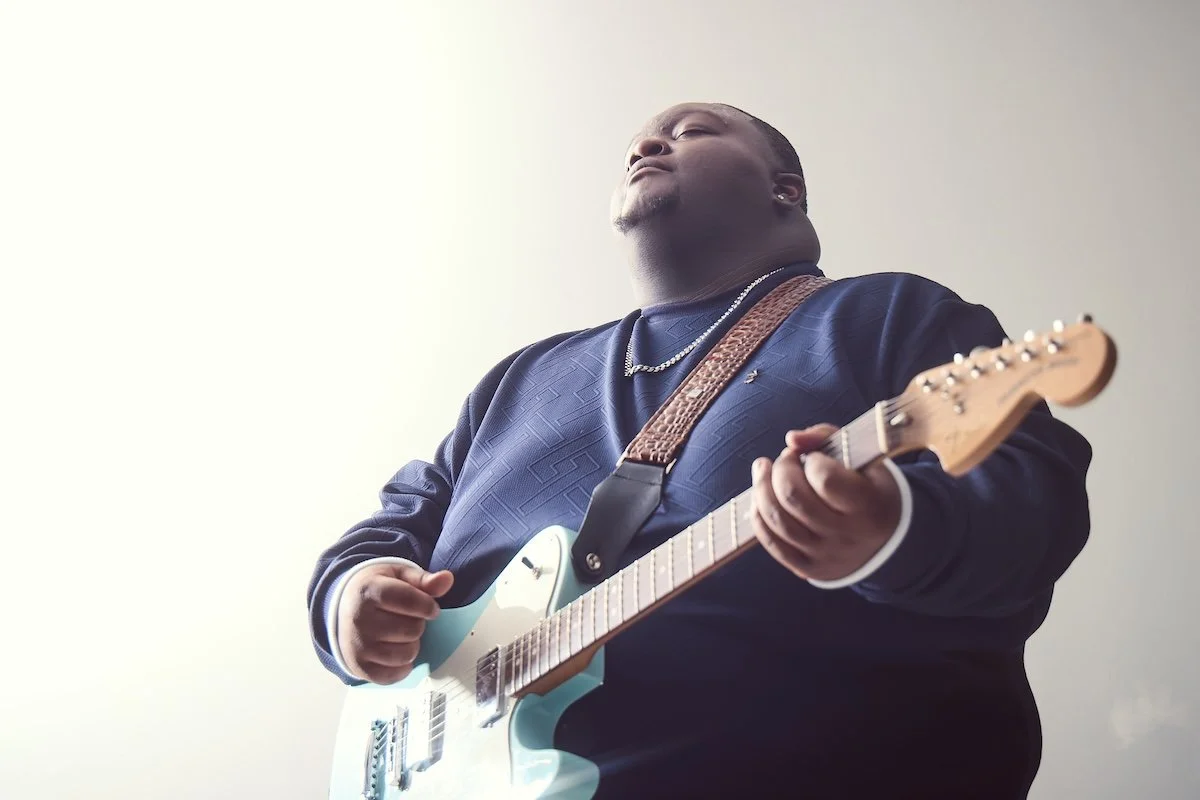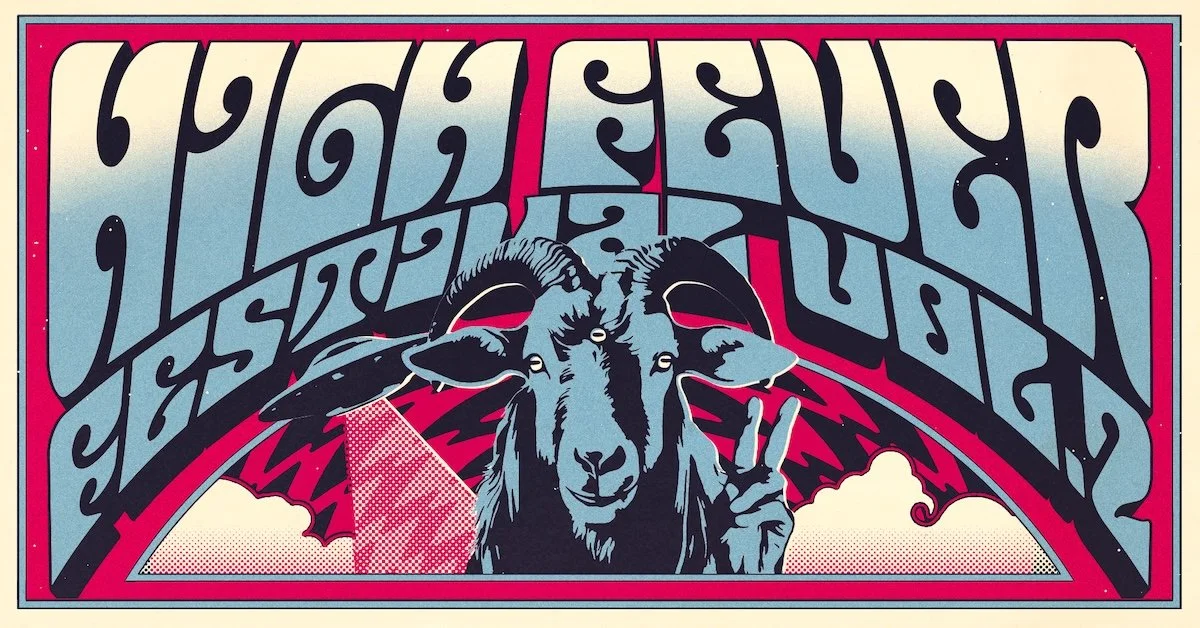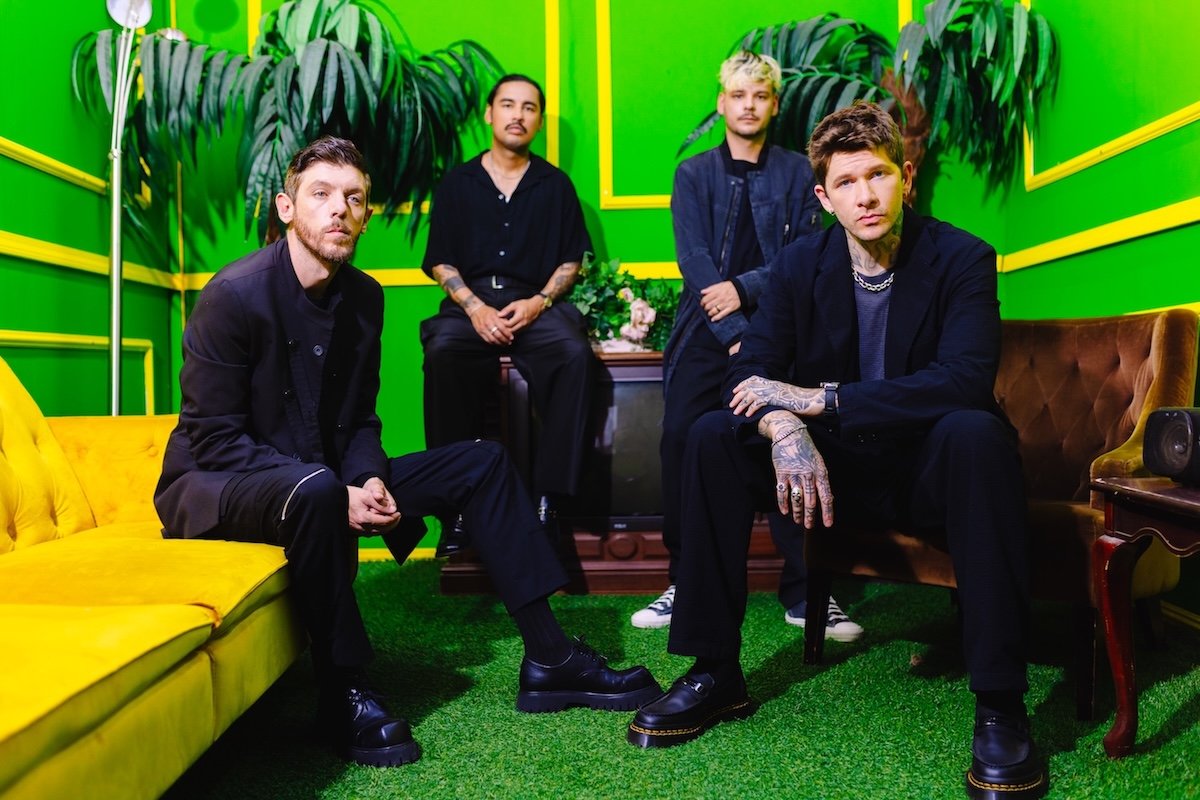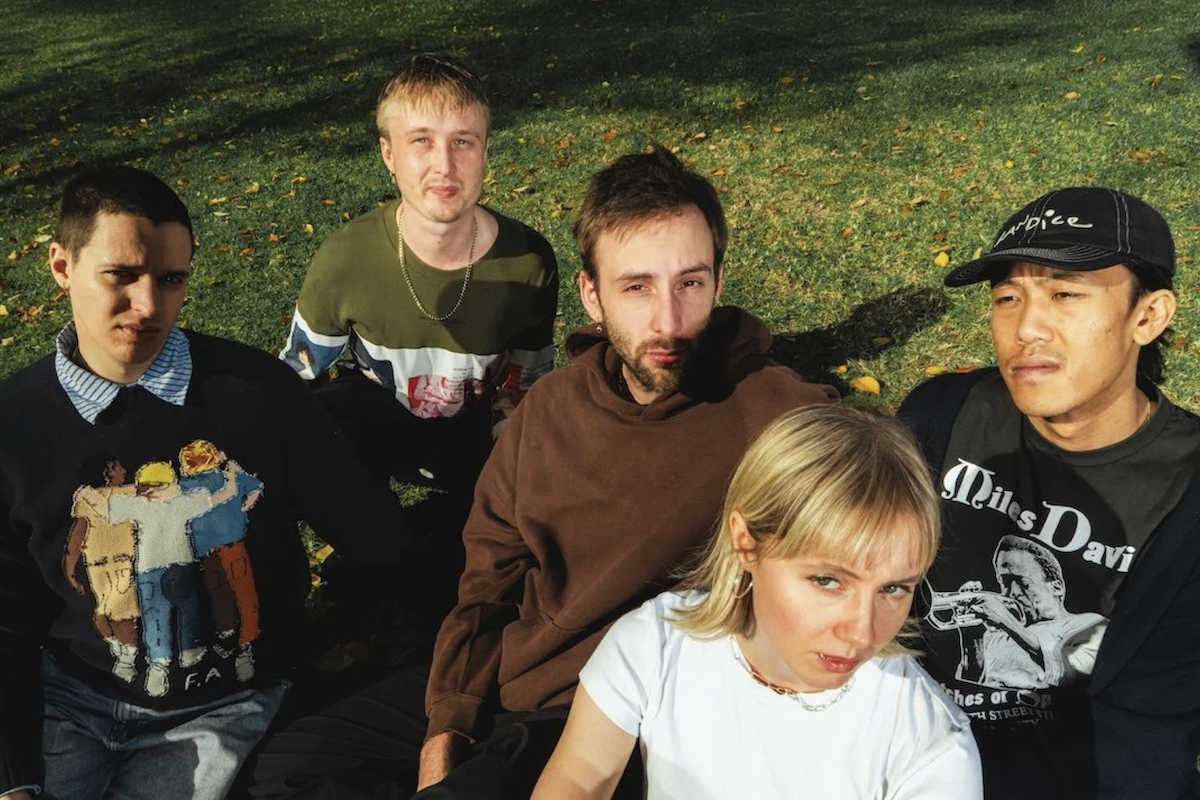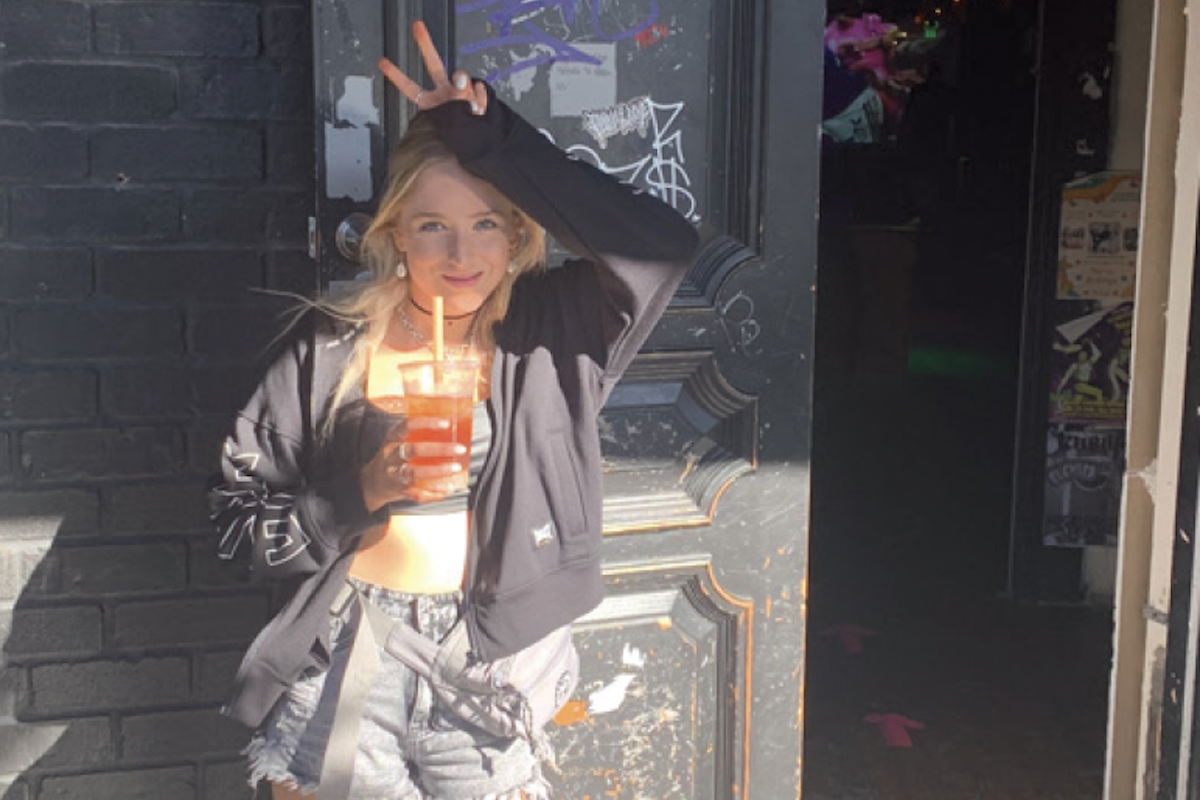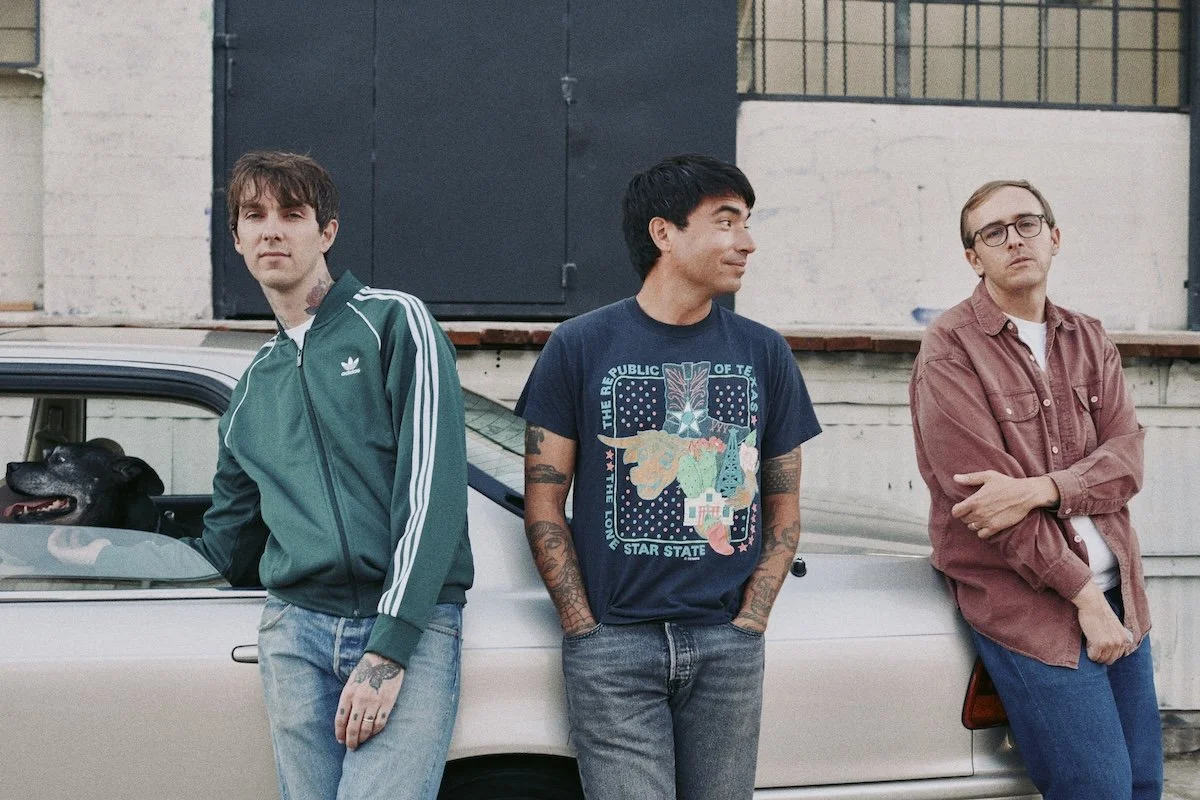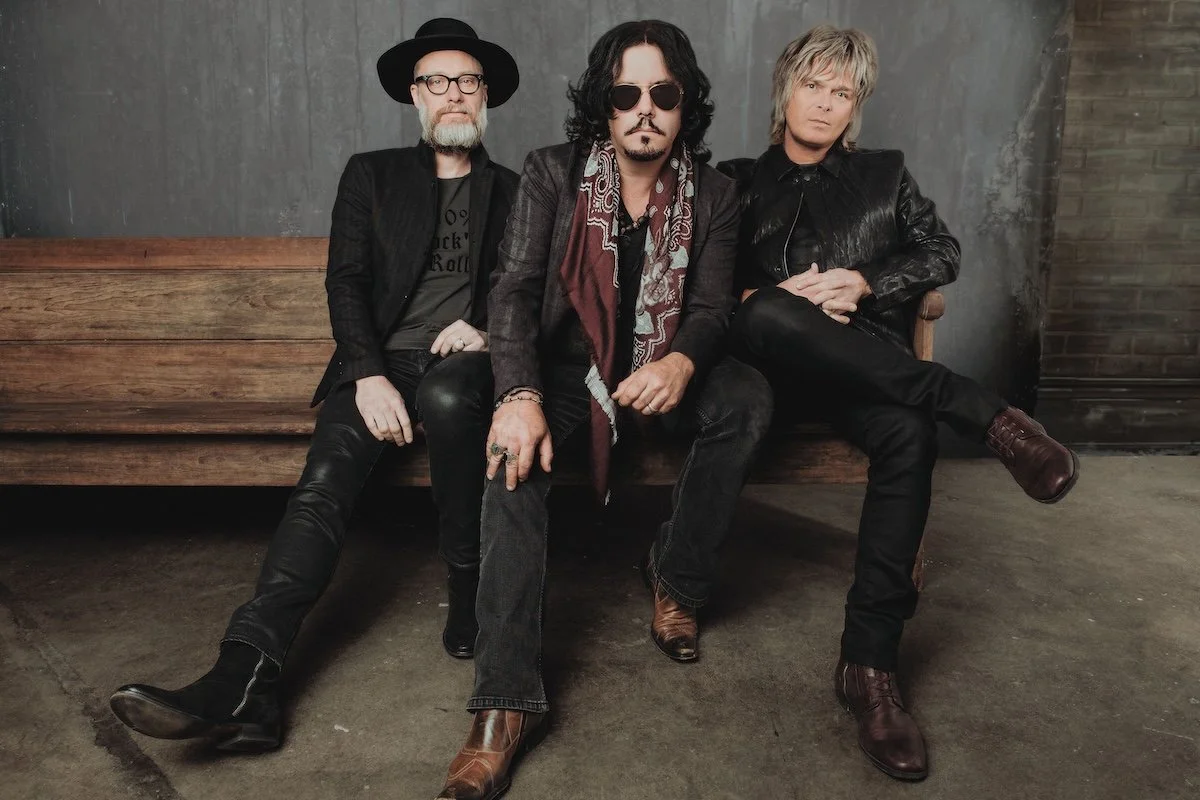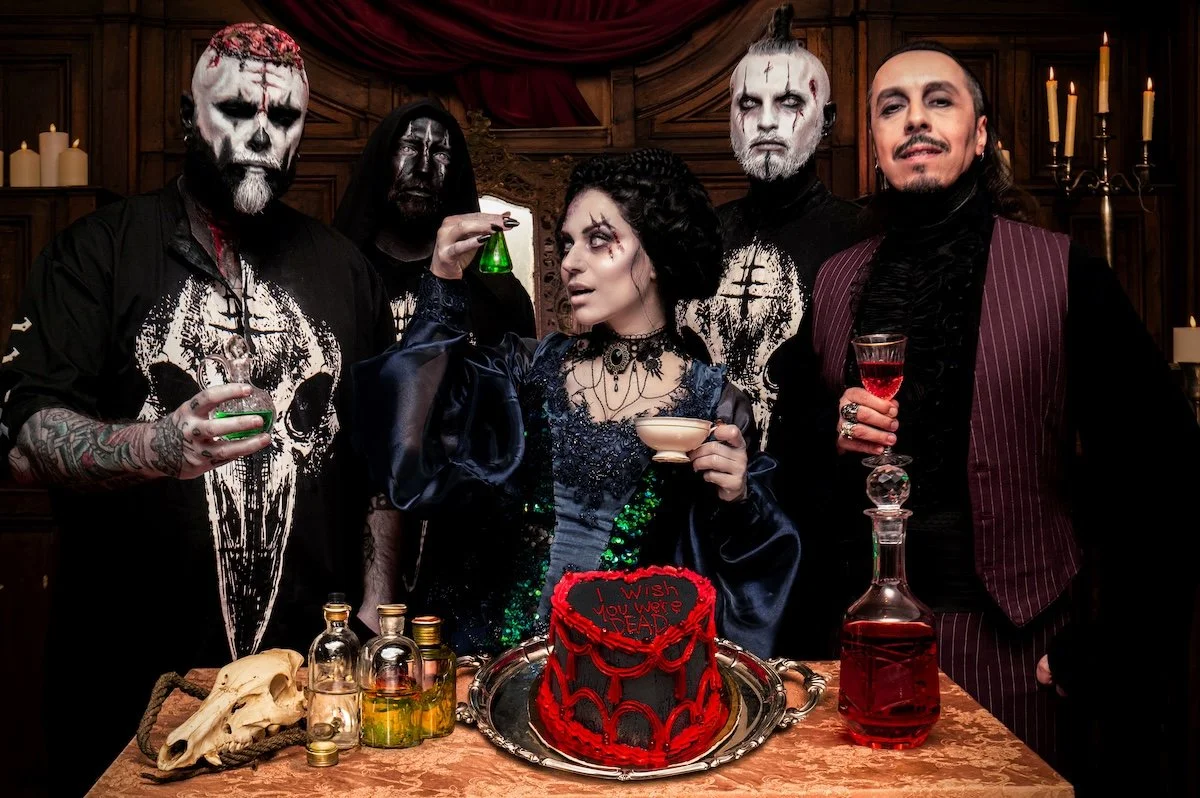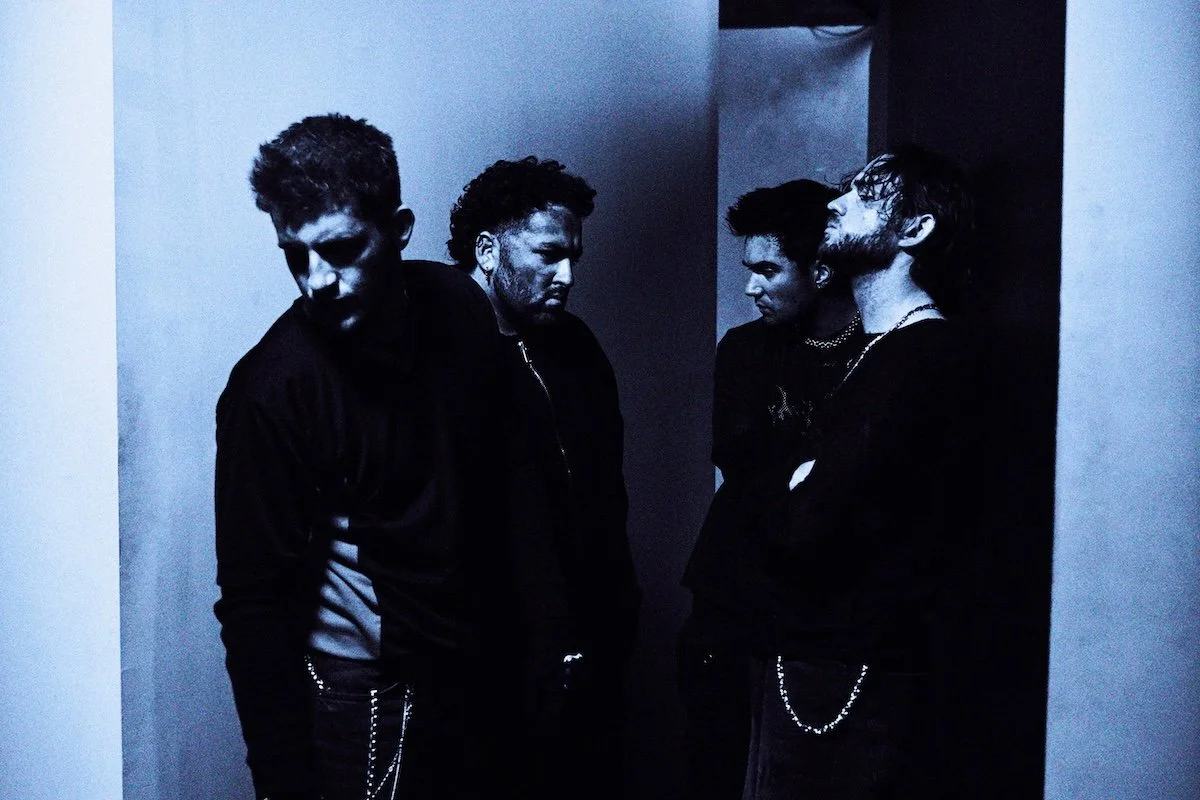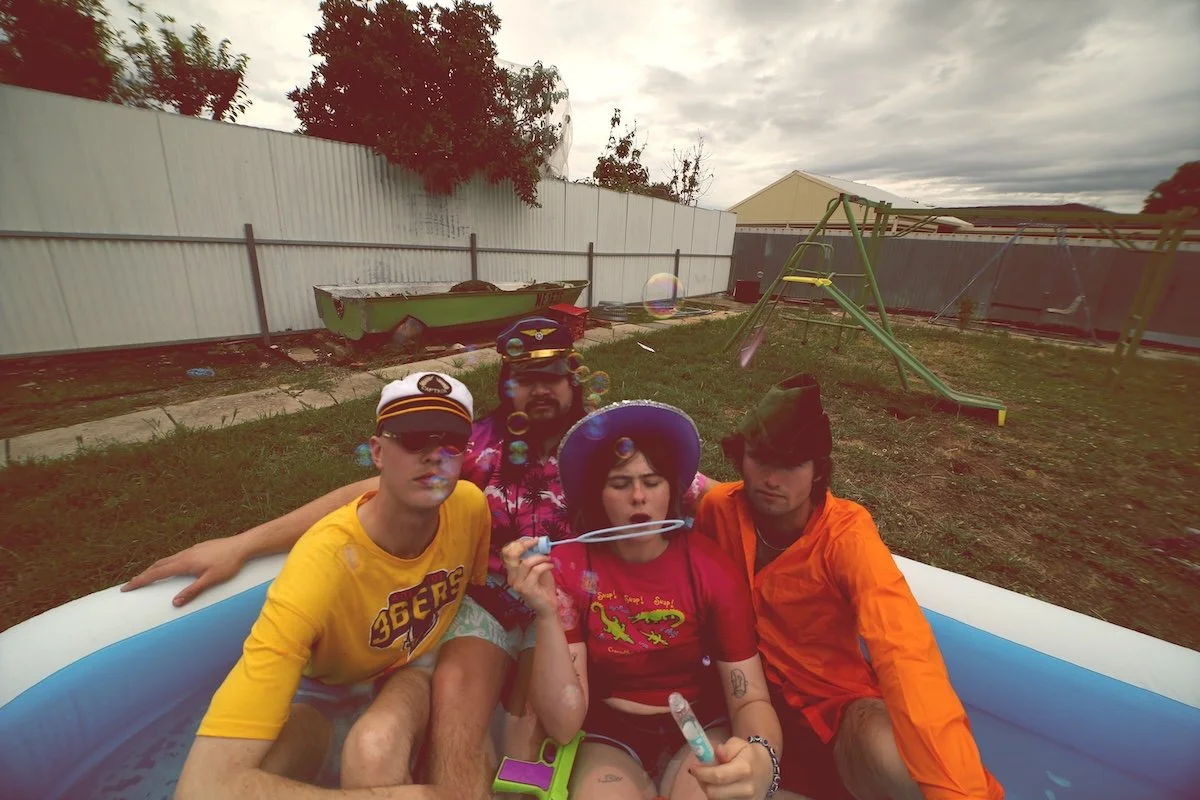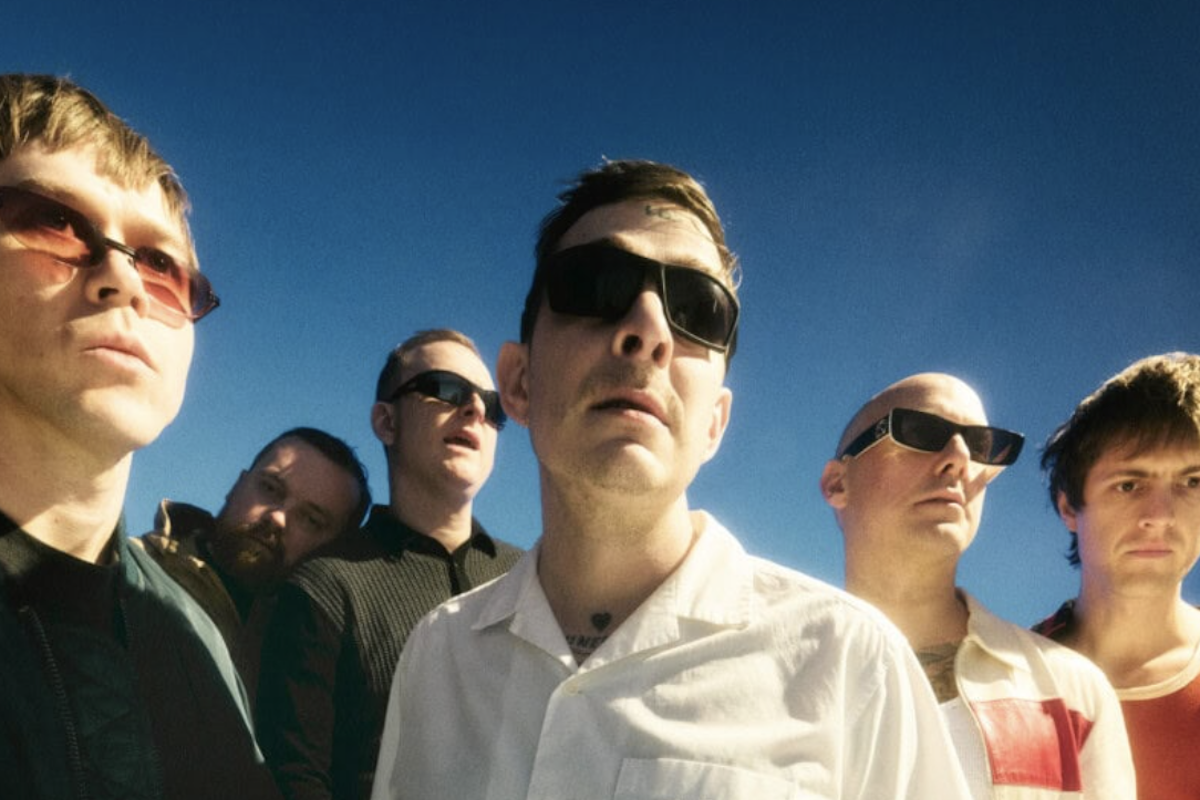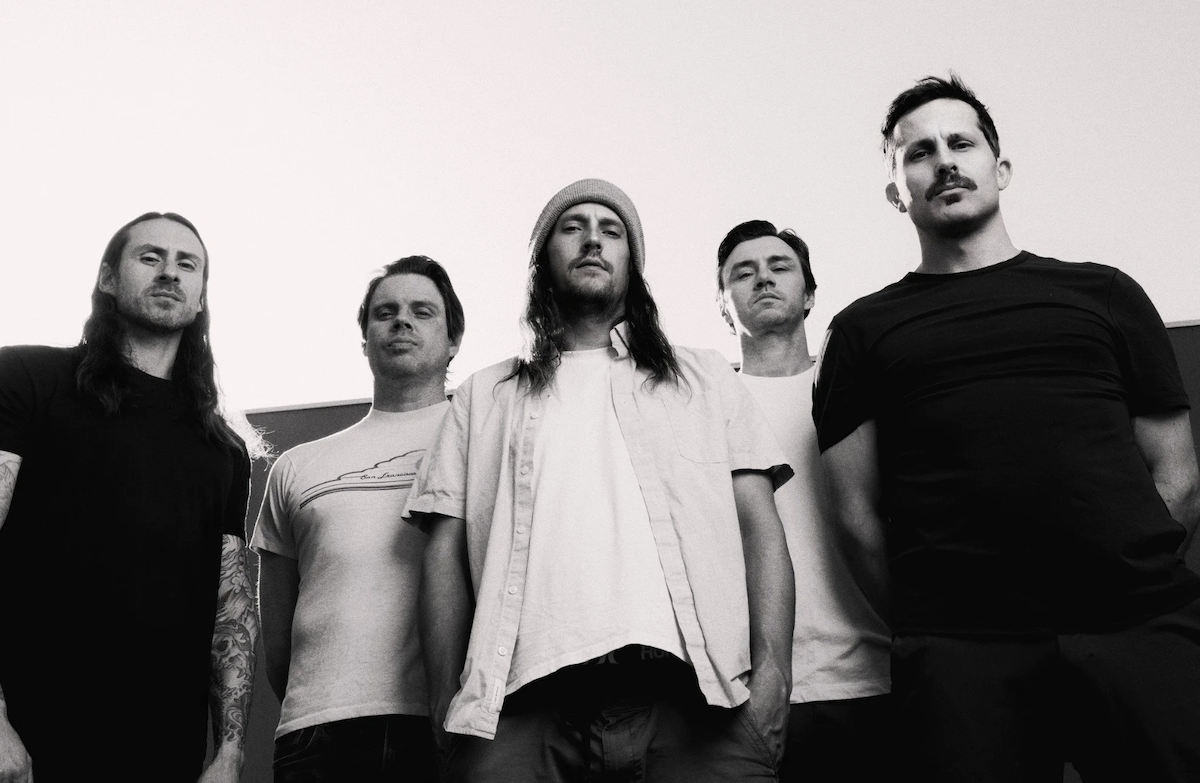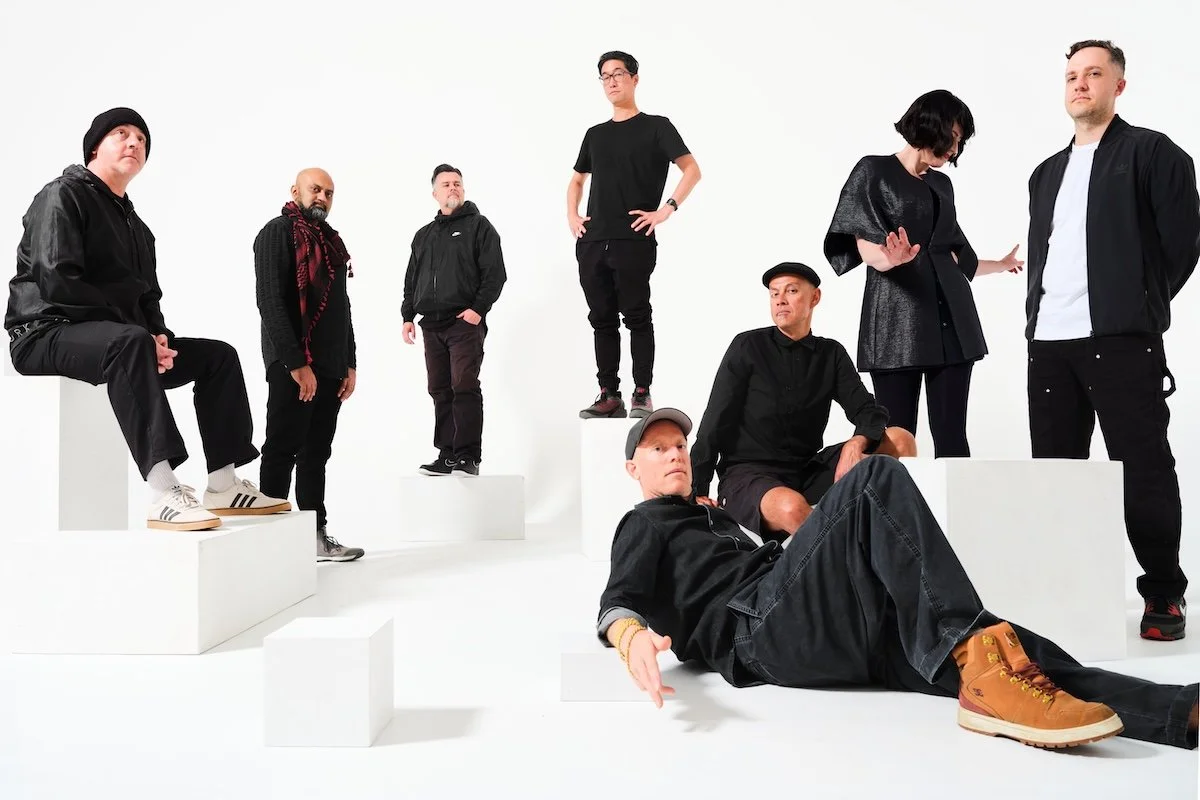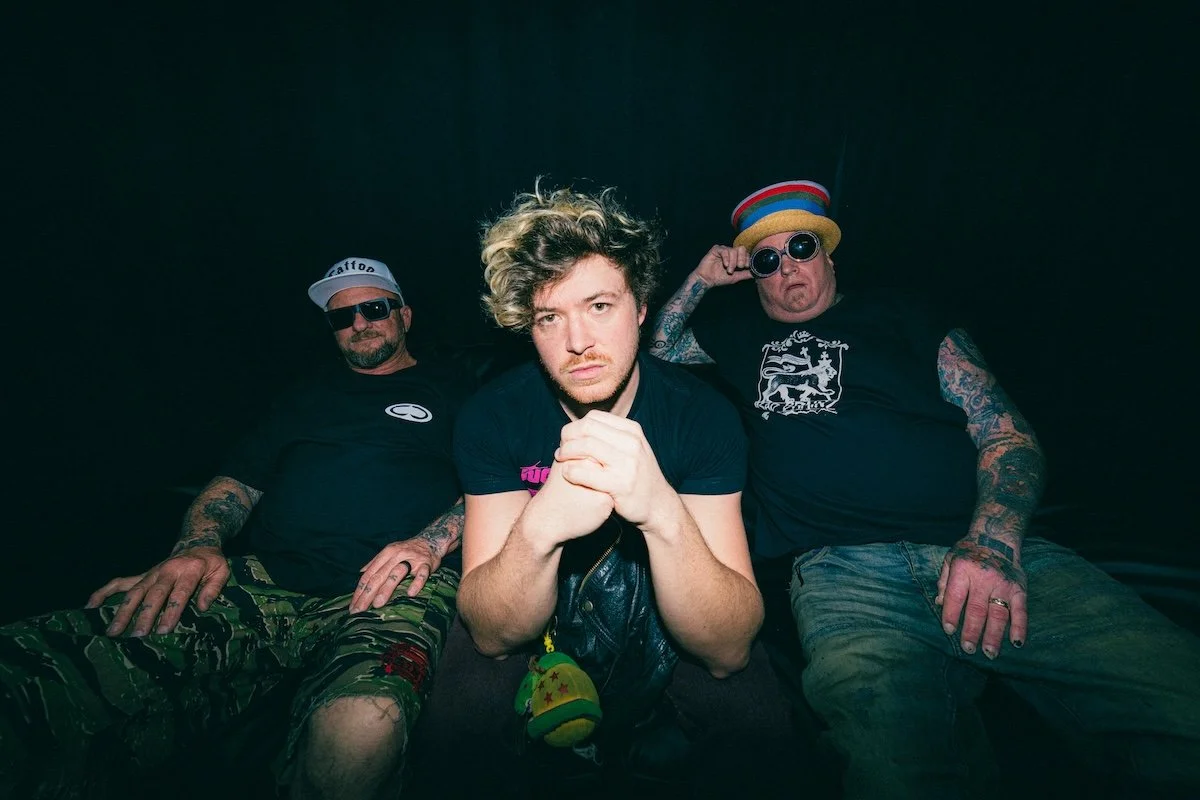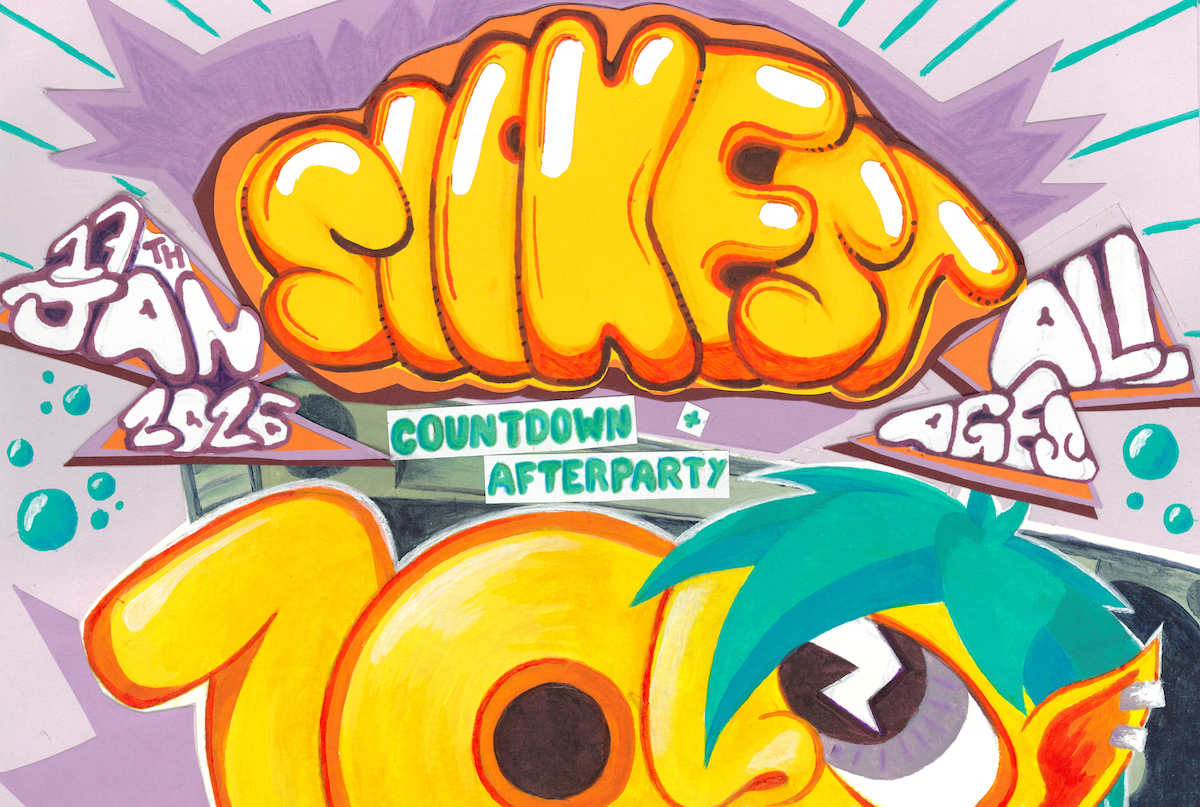Inside the Comedy and Community of These New South Whales
Aussie punk icons are back with new thrilling new album, GODSPEED. Vocalist Jamie Timony and guitarist Todd Andrews got on Zoom and spoke with The Note about their artistic process, their relationship with GODSPEED and mixing politics with music.
Interview Emily Wilson // Image Imogen Thomas
Many a musical act would argue that they cannot be pigeonholed - but for These New South Whales, this is undoubtedly true.
The four-piece are routinely classified as Australian punk royalty, but they are also celebrated for their endeavours outside the world of music: they are comedy legends, podcast hosts, politically defiant establishment-shakers. The band dabbles in it all, but their upcoming album GODSPEED reminds us why, outside of their many talents, at the end of the day, they are still punk royalty above all.
Over Zoom, vocalist Jamie Timony describes these various artistic outlets as “overall, inherently intertwined. They’re all sort of different facets of the same project.”
“It’s like this weird crossover,” guitarist Todd Andrews chimes in - all part of the These New South Whales Cinematic Universe.
It is the kind of artistic approach that breeds a fervent fanbase. To be a These New South Whales fan is to be a part of a passionate community.
“I got quite sentimental on the last tour for whatever reason. Particularly at our Melbourne show. Just because having a room full of like-minded people come together - particularly with some of the sentiments in our music,” Jamie says, hinting at the band’s more overtly political messaging (such as their clear disdain for the police). “Seeing people come together and have a good time together just feels cathartic for whatever reason, particularly with how divided everyone is.
We’re all in our digital bubbles. I just think there’s power in these - I know a lot of people are saying it, but I think that’s because it’s true - these IRL experiences. Having conversations, making connections. I think it’s really beautiful.”
Todd agrees. “I definitely feel the same. The live space around music and art, and people in communities, is really important.” He cites Pro-Palestine rallies as an example of a similar community-minded environment. “Making art at a time like this is a privilege, but it’s also an opportunity to reach people and talk to people.”
GODSPEED, their latest offering - slated for an anticipated 28 November release - is a veritable hodge-podge of influence and genre, from ‘80s balladry and British guitar pop to full-throttle hardcore.
“It feels, in a lot of ways, like a combination of the records before, but more realised,” Todd explains. “It pushes everything, but to a place that feels like home.”
The album was an attempt at “encouraging people to take the reins in their own life, or to reclaim their sense of agency,” Jamie says. “It’s also about the right to make bad choices for yourself. You’re allowed to make mistakes; you are literally the boss of your life.” He chortles at his own phrasing. “And you can do whatever you want.”
The relationship he has with a record always alters on its release day, he explains. “I feel it every time. Listening to a record on release day, you do hear it with new ears.”
This particular record, he says, very much came about - in all its fury and high emotion - as a result of the lunacy of the modern age. “It’s quite a unique time in life where we’re having a genocide livestreamed to our devices, all day every day,” he says solemnly, referring to the displacement, starvation and mass slaughter of Palestinian citizens. “So I think that atrocity that’s been happening has fueled a sense of insanity. Everything just feels upside down. I think that certainly has crept into the energy that went into making this album.”
READ MORE: Dayseeker’s Rory Rodriguez: “Songwriting Is My Process To Get Through What I Am Feeling”
The writing process prioritised emotion rather than intellectual analysis, he explains - it all poured out. “It is quite a vulnerable album, even in its harder moments. But I think that that’s all part of it. I think you should feel a little exposed, as an artist.”
Though These New South Whales is politically earnest, they are also renowned for their sense of humour. In 2018, the band landed a historical deal with Comedy Central which rendered them the first-ever Australian band to develop their own TV series and license it to a cable television network (executive produced by Roger O’Donnell of The Cure and Jeffrey Walker of Modern Family). When first launched on YouTube, the self-titled mockumentary series, which followed the goofy exploits of the Newcastle music scene, became a cult sensation. Totally self-deprecating and side-splittingly funny, the show resonated with musicians and non-musicians alike.
“I think we were first and foremost laughing at ourselves in our previous bands for taking ourselves too seriously,” Jamie says. “And also poking fun at the ego of musicians.” Having an ego, he admits, is normal - especially given the adrenaline and adulation that appear to accompany a life on the stage - as long as one is “watchful and mindful” of it. But the show poses the question: what if one was absolutely not watchful of their own ego? “A lot of people aren’t. We’re also taking the piss out of the boys club mentality of the industry as well.”
These New South Whales have built such admirable momentum, such a devoted fanbase, within the confines of a DIY, indie model. The only reason they’ve been able to do it, the musicians explain, is once again because of the prioritisation of community - something that emerging artists are in desperate need of.
Todd says, “I think for artists coming up, it’s really important to have places to play shows, meet other bands, have people come along and watch you and make friends at your shows and build community. To discover new music that way, rather than through an algorithm. I think giving more support to venues and pubs that have music to be able to sustainably run a business that way is really important.” He mentions how Amyl and the Sniffers recently bestowed a handful of venues with a large lump sum in the aftermath of the cancellation of their scheduled free show. “That meant a lot to those venues. It gives kids a place to go see bands on a Sunday.”
“There are obvious issues of exploitation,” Jamie says when discussing what plagues upcoming artists. “Spotify, for example, - they’re obviously investing in really horrible things and promoting really horrible things on their platform,” he says, hinting at CEO Daniel Ek's investment in AI military.
It is obvious that, as musicians and as people, they are steadfast in their values. What do they have to say in regards to the expectation that some might expect them to leave politics out of their art?
“I just think that’s crap,” Jamie says succinctly, though he concedes, “Sometimes politics in music can be a bit eggy and on the nose. I do think it’s a fine line.” It is easy, he thinks, for overtly political songwriting to feel trite, even if the sentiment is of value. “It's a tricky line. But it’s such a privileged thing to be like, leave politics out of it.” He shakes his head.
“So many of my favourite bands just do not leave politics out of it,” Todd adds - which is something that helps him to further connect with the music itself. “I love going to a show and seeing a guitarist with a Palestine flag draped over their amp. I think if it’s authentic and it connects with people, it’s great.”
That is clearly what has connected so many fans to These New South Whales, across their many different mediums - authenticity.
GODSPEED by These New South Whales is out now. Listen here.
